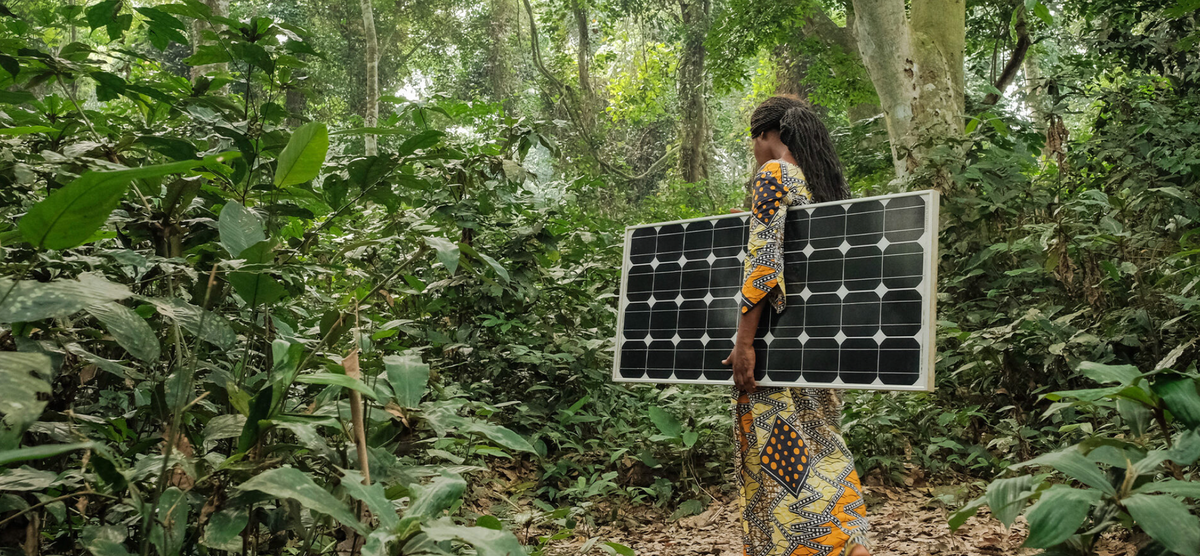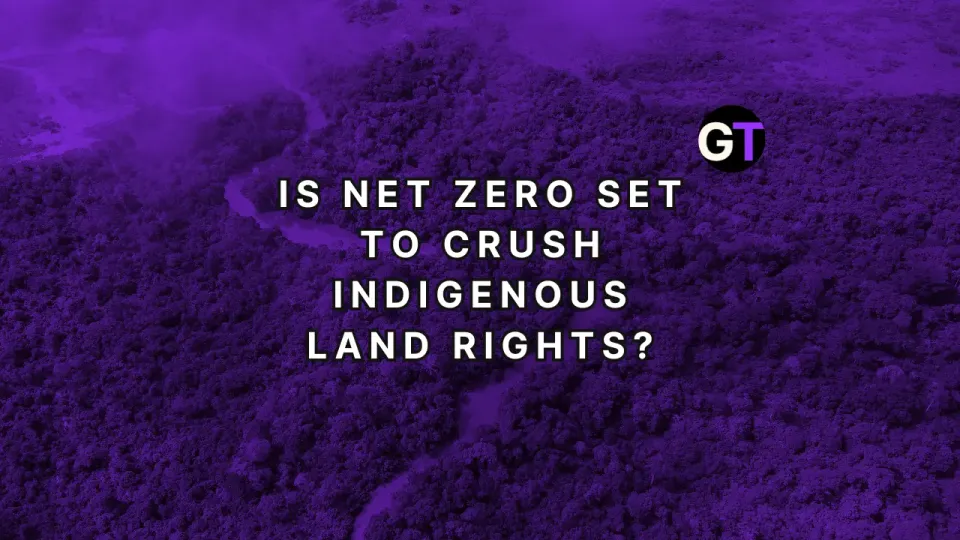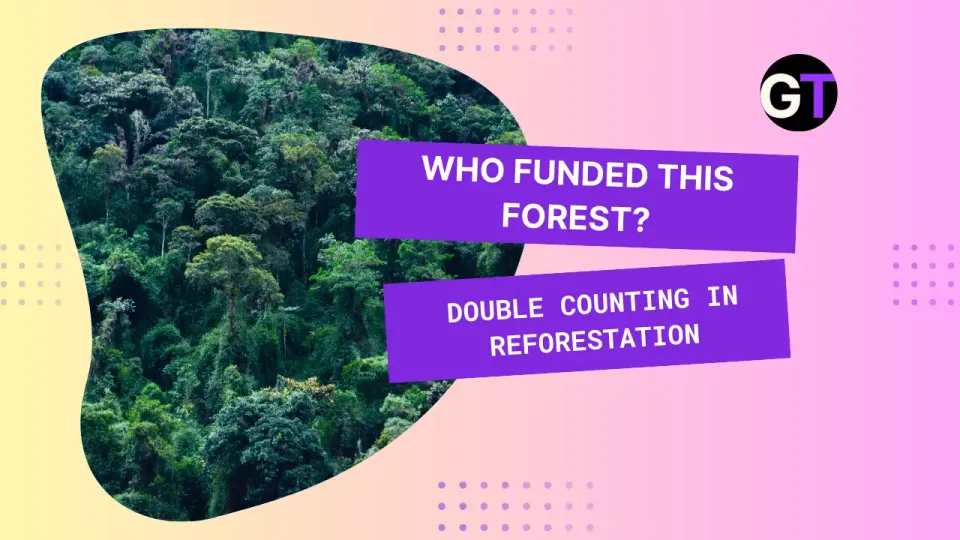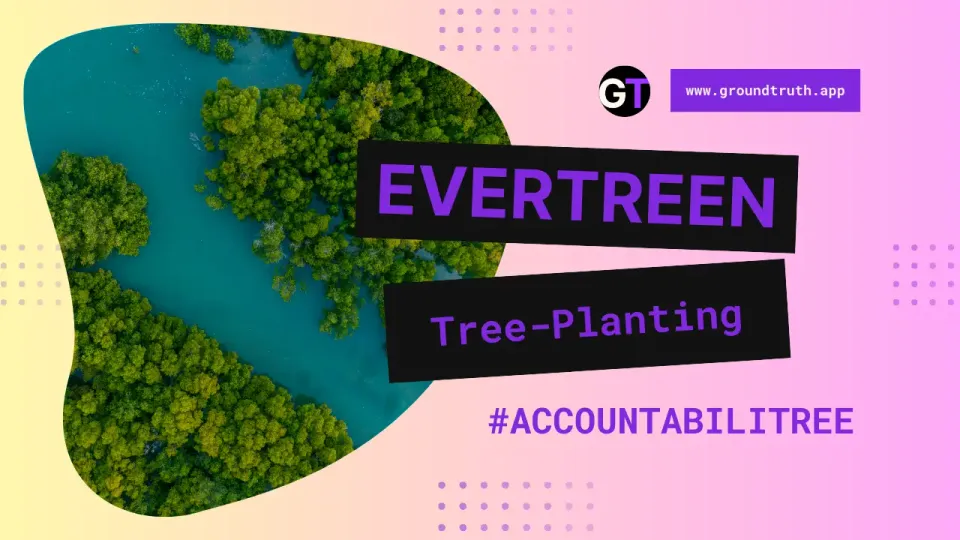COP29 Funds & Finance Reform: Key for Africa’s Climate Fight 💸
Development finance is undergoing meaningful and potentially impactful reform for the first time.

This article by David Akana originally appeared in Mongabay.
- From 11 to 22 November, the world will be looking to leaders to ramp up action and financial support for nations on the frontlines of climate change.
- COP29 is billed as the ‘finance COP’ because it is time for countries to set a new global climate finance goal. Will Africa get the support it requires, this time?
- “It is important to acknowledge the significant role that the COPs play in addressing climate change [but] it is equally crucial to prioritize efforts aimed at comprehensively reforming the international financial infrastructure to ensure fair and just treatment of Africa,” writes Mongabay Africa’s program director.
- This article is a commentary. The views expressed are those of the author, not necessarily Mongabay or Ground Truth.
It is always puzzling to witness the immense hype surrounding COPs (conferences of the parties to international conventions or treaties). Back in 2009, Barack Obama had just been elected U.S. President. His arrival in Copenhagen, the host city of that year’s United Nations Climate Change Conference (COP15), brought so many expectations. Some would argue that despite his star power, COP15 only managed a last-minute deal to save face.
Despite the complexity of the climate COP, every year it is heralded as a crucial juncture in the ongoing battle against climate change. However, it consistently falls short of meeting the expectations of those advocating for swift action in light of the stark warnings presented by scientific research. A recent comprehensive assessment of planetary health, unprecedented in its scope, sounded the alarm that the Earth is surpassing safe thresholds. This begs the question: why are politicians and policymakers not responding with a comparable sense of urgency?
Once again, this year, representatives from over 198 countries are gearing up to head to Baku, Azerbaijan, for COP29 to push climate action forward with their usual energy and enthusiasm – perhaps a good thing, as the daunting nature of the process makes it only possible for optimists to stand its slow nature.
While it could be credited for enabling incremental change, it falls short in achieving the transformative change demanded by science and activists. Worst still, its ability to deliver what Africa needs regarding financial solutions to address the urgent impacts of climate on its people and communities is limited.

International financial system reform needed
A separate discussion centers on reforming the international financial system, making it fairer and more accessible to African countries, to increase their ability to restructure current debts, and calling for a global resilience fund might hold more promise.
Development finance is undergoing meaningful and potentially impactful reform for the first time. After so many years, the World Bank, IMF, and regional development banks have been opening up for reforms.
In this process, Africa is asking for greater say in the bank’s board. It is asking for the prioritization of the development agenda and investment in climate change adaptation. And there has been significant progress in this direction – most of the current reforms of the World Bank are centered around making climate a central priority.
In the IMF, the Special Drawing Rights (SDRs) international reserve asset has been largely challenging for African countries to access. Current reforms might make it easier for African countries to use this tool: “In my recent discussions with international officials, a consensus has emerged on four key areas of IMF reform: lending instruments, issuance of SDRs, addressing debt distress, and governance reforms,” wrote Kenyan President Ruto in April 2024.
Elsewhere, there is a call for better engagement with credit rating agencies, which rate African economies unfairly, keeping the risk of doing business there higher and making Africa a less attractive investment destination while making borrowing from international financial institutions challenging. But more investment means more money to invest in resilient growth, assuming there would be greater transparency and accountability for the use of public funds.
Prioritizing domestic solutions
There is a lot of focus on holding northern partners accountable for paying the climate bills. While it’s not a wrong argument, the COP process is slow and unable to deliver quickly to compensate for the lost time and current damages resulting from climate change. Instead, African countries should prioritize innovative and market-driven tools to build resilience and prevent climate-related shocks on its people.
One important area is the better collection and use of tax revenues. For many African countries, taxes are the primary revenue source for addressing national priorities. If this money is collected transparently and used effectively, it can go a long way in addressing national priorities. However, corruption and mismanagement are holding back progress. It’s crucial for governments to take action rather than wait for foreign help. National budgets can be more effective than Official Development Assistance in delivering adaptation benefits.
The nature economy represent a significant growth opportunity for many African countries, although the exact value is not known. Rwanda, for example, has made ecotourism a central part of its planning, and has seen great benefits from it. It is now using the money to build resilience and provide basic services to its people. Many African countries can strengthen their ecotourism, but it requires a clear vision and persistence to translate it into action.
In June 2024, I had a meeting with Minister Stephanie Mbombo, the former minister of the New Climate Economy in the Democratic Republic of Congo (DRC). During our hour-long discussion in her office, Minister Mbombo explained to me the opportunities in the carbon market and how the DRC could use it to stimulate its economic growth. She also discussed the peatland economy and other strategies the DRC was planning to implement to turn environmental challenges into opportunities for economic growth and poverty reduction.
“Africa’s vast forests, such as the Congo Basin rainforest, the Guinea-Congo forest, the East African Coastal Forest, the Miombo Woodlands, and the Sudanian savanna, have a significant role in the global carbon cycle as carbon sinks. As such, these landscapes have the potential to play a major role in carbon trading,” argued Mthuli Ncube, Zimbabwe’s Minister of Finance, Economic Development and Investment Promotion, in a blog post on the World Economic Forum website in February 2024.
Sustainable climate finance in Africa relies on effectively utilizing market mechanisms and enhancing private sector investment in this evolving climate economy.
See related: A just energy transition in the DRC requires greater equity

Embracing opportunity vs inequality
While it’s important to address climate injustice and other legitimate, inequality-related issues at COPs, Africa should refrain from presenting itself as a victim. Instead, it should demonstrate strong leadership, emphasize the potential of its climate economy, and increase investment in the continent’s green economy.
As a global common good, solving climate change sustainably requires collaborative action. Nevertheless, it is imperative for African governments and leaders to actively seek innovative and viable strategies to protect and enhance the welfare of their citizens. The pressing need for indigenous solutions is further underscored by the severe impact of climate variabilities, which often result in loss of life and extensive property damage, as seen in the Sahel, East, and southern Africa this year. Depending solely on foreign help reflects a lack of foresight and leadership, particularly among those entrusted with governance.
In conclusion, it is important to acknowledge the significant role that the COPs play in addressing climate change. However, it is equally crucial to prioritize efforts aimed at comprehensively reforming the international financial infrastructure to ensure fair and just treatment of Africa, leveraging domestic resources, and pursuing market solutions and private sector funding.
David Akana is the Program Manager for Mongabay’s Africa bureau. He holds advanced degrees in business, international relations, and mass communications.
License
Akana, David. "Africa Needs COP29 Funding to Manage Climate Change, International Finance Reform (Commentary)." Mongabay News, 4 Nov. 2024. Republished under a Creative Commons Attribution-NoDerivatives 4.0 International License.




